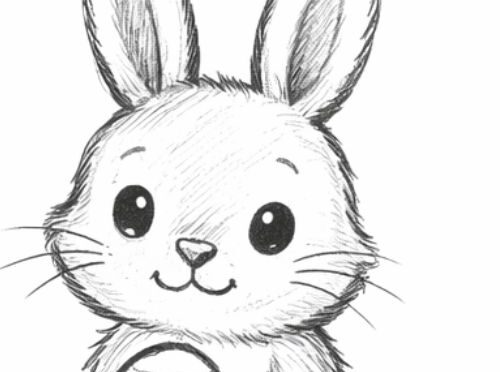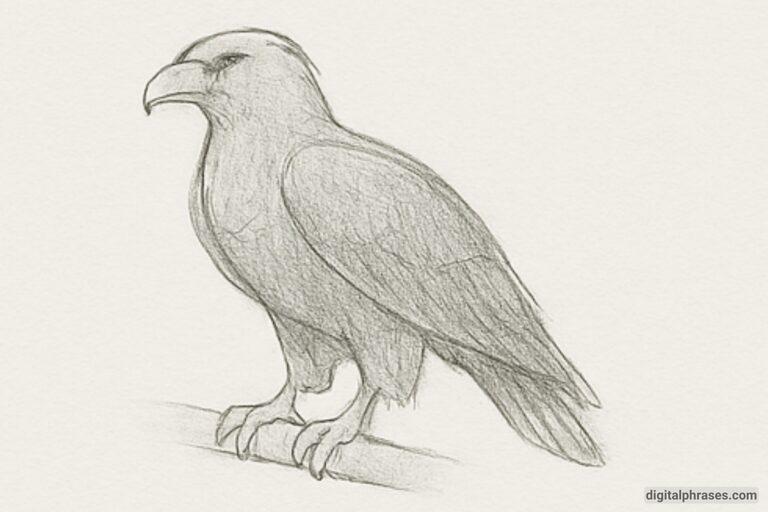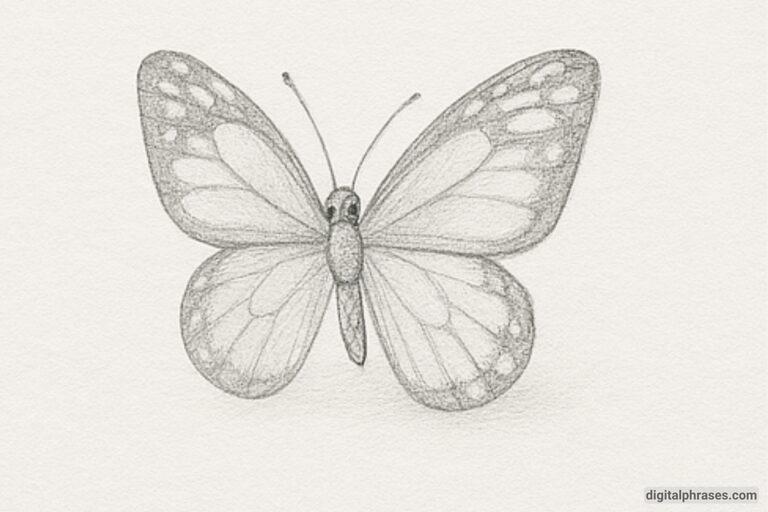How To Draw a Chicken
Here’s a step-by-step process on how to draw a chicken.
Step 1 – Start with Basic Shapes
- Begin by drawing two overlapping circles: a smaller one for the head and a larger oval for the body. Position the head slightly above and to the left of the body.
- Add two short lines beneath the body to indicate the placement of the legs.
- These simple shapes form the structural foundation of the chicken and help guide proportions as you refine your drawing.

Step 2 – Outline the Chicken’s Form
- Sketch the chicken’s neck by connecting the head and body with smooth, curved lines.
- Begin defining the beak by extending a small triangle from the head, and shape the neck into a more bird-like curve.
- Outline the tail with an upward sloping curve from the body, adding a layered look to suggest feathers.
- Draw the legs with slightly bent joints and add three-toed feet, pointing slightly outward. This creates a balanced stance.
- Erase unnecessary guideline overlaps to clean up the silhouette.

Step 3 – Add Features and Define Details
- Refine the chicken’s head by drawing the comb (the fleshy crest) on top of the head using a series of bumpy, rounded shapes.
- Draw a small wattle (the flap of skin under the beak), and add the eye as a small circle with a darker center for depth.
- Enhance the shape of the wing by sketching a soft curve along the side of the body.
- Add toes and claws on each foot, making sure they look slightly curved and natural.
- Begin lightly outlining feather texture, especially around the wing and tail areas.

Step 4 – Shade and Finish the Chicken
- Darken the outlines of the body, tail, and legs to bring clarity and definition to your drawing.
- Shade areas under the wing, belly, and neck to add depth and form.
- Add texture to the feathers using short, curved lines following the body’s contour. Focus especially on the wing, tail, and upper back.
- Enhance the eye with a highlight spot and deepen the shadow around it for realism.
- Shade the feet slightly and add small lines to indicate scales and joints.
- Adjust the comb and wattle with subtle shading to show volume and light direction.







